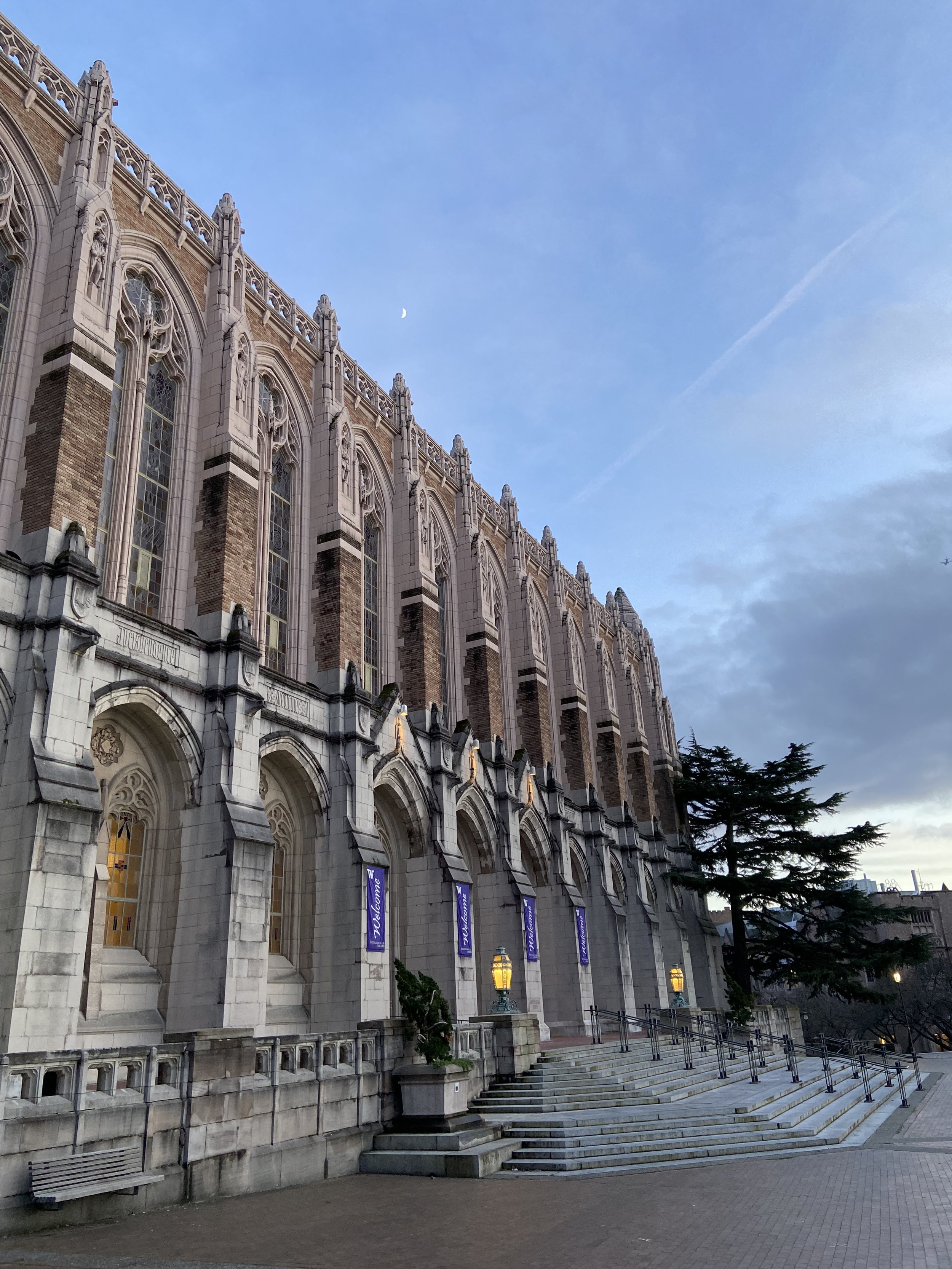
Learning Design
University of Washington, College of Education
Scroll ↓
EDUC 280-Introduction to Education, Communities, and Organizations: Re-Envisioning Education
ROLES
Instructor, Curriculum Designer
In the fall of 2022, I was the lead instructor for EDUC 280, a course within the Education, Communities, and Organizations (ECO) major in the College of Education. I came in with a unique experience, being apart of the inaugural class of the ECO major in 2018.
With the freedom to enhance the curricula however I saw fit, the big question was- what value and knowledge can I add to what already exists, and what experts can I highlight relevant to the course? This was an introductory course to the ECO major, which meant I had to cover certain topics each week to ensure I was providing an accurate overview of what students will be learning in the major, and how it is both relevant to them now, and in their future careers.
BACKGROUND
To enhance the curricula that was previously developed, to both represent my knowledge and expertise, and update it with new readings/research, activities, and educational technologies.
I wanted to create an environment where students felt academically and intellectually challenged- critically examining current systems that influence education and how we exist in these spaces. Allowing students space, agency, and creativity to take charge of their learning experiences and make it the most beneficial for them.
GOAL
Curricula review: reviewing previous curricula from the past 3 years and meeting with past instructors to understand their expertise and vision for the curricula they created, including what they kept/removed from previous years and what they felt was important to add.
Reviewing readings to design weekly lesson plans and activities, adding readings and insight on the latest research in the field of education and education-technology
Feedback: consistently collecting student feedback to improve the class and implement student suggestions and ideas in following classes
CURRICULUM DESIGN PROCESS
10-week course on the ECO major, containing the following learning outcomes and topics-
Primary objectives:
Provide an overview of the disciplinary fields that constitute the Education, Communities and Organizations (ECO) major: Human development, learning theory, equity studies, organizational studies, and community engagement.
Provide an overview of the ECO major, including core courses, learning objectives, faculty, and community partners.
Learning outcomes: Students will be able to…
Identify ecological theory to better understand the historical, political, social, and
economic context of the Seattle community.
Understand the process of learning, recognizing the relationship between the kinds of
learning that happens within and across settings, both inside and outside of schools.
Begin to identify factors influencing learning and development at different stages in
the life course.
Engage in ongoing reflection on identities and biases that influence personal and
professional growth.
Recognize the importance of identifying community assets and forming respectful
relationships with community organizations, practitioners, and community members that reflect sensitivity to power dynamics.
Course topics:
What is the ECO major?
Ecological theory
Learning across settings
Human development
Asset-Based Community Development
Seeking Educational Equity & Diversity
Individuals, groups, & organizations
Community-based research & practice
ECO professionals paths
PRODUCT
In-class group activity on policy implementation in education in the context of incorporating immersive technologies. Part of the Individuals, Groups, & Organizations curriculum.
Working and learning alongside undergraduate students was an extremely fulfilling opportunity. My students were passionate about making change, and were open, vulnerable, and creative in their assignments. I truly felt I could see the next generation of leaders, community builders, and educators within my classroom, and was grateful that I was able to learn so much from them. I got to work alongside incredible educators within the College of Education, including some past professors.
A moment that was really meaningful to me was developing a class activity around Japanese American history at the UW. We discussed a reading about a Japanese student club that was created as a space of community when they weren’t allowed to join the White-only fraternities at the time. This club also had family ties as my grandfather was a member who then continued to work and build the Seattle Japanese community. At the end of the activity I asked if this history was new to anyone in the class, and all my students raised their hands. Knowing that I could help to enhance the visibility of the Japanese American community, along with others that have gone mis- and underrepresented in education was a very powerful moment for me.
KEY TAKEAWAYS
In-class activity and discussion about the SYNKOA House at UW

